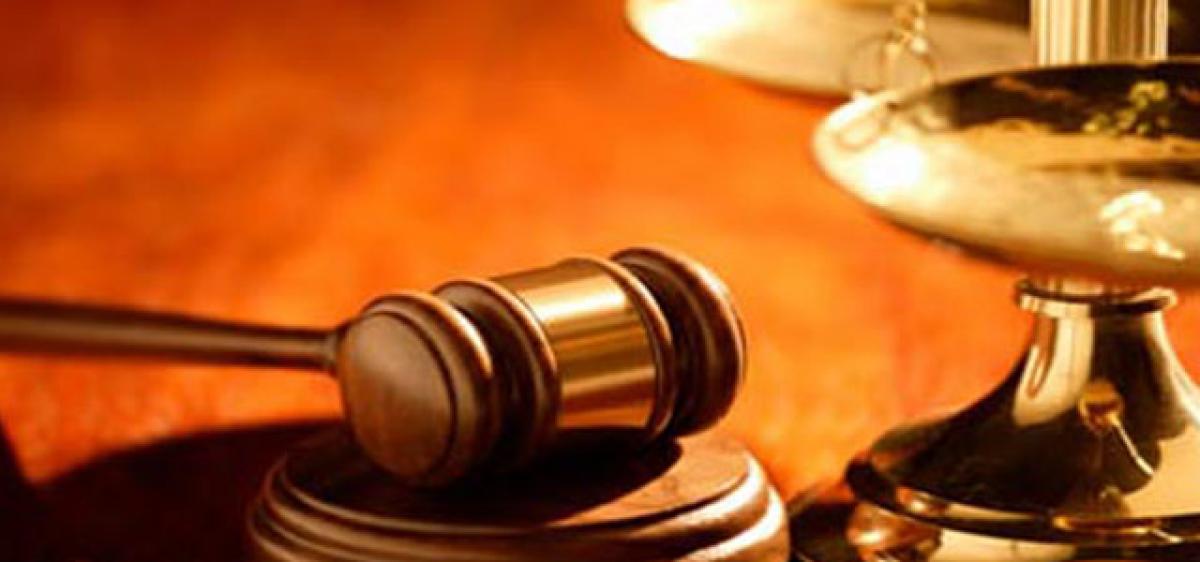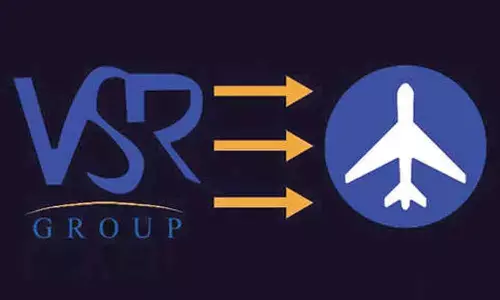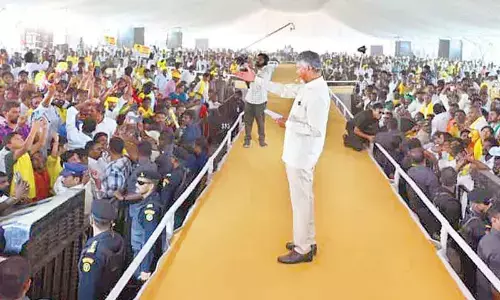Where to complain against Judges?

Where to file complaints against Judges, and what will happen to them? This question was discussed when Subhash Chandra Agrawal, the appellant, holder of Guinness World Record in publishing the highest number of “Letters to the Editor” on socio-political issues, filed a request (1) “take action against judges suspect of moral deviance: V R Krishna Iyer (ET 16.7.2013), news report from Jagran dated
The CPIO has not given copies of forwarding letters, names of ex CJIs, retired or serving judges against whom complaints came, or the number of such complaints. Though it appears that his apprehensions were quite genuine, he could not explain under what exceptions such information could be denied
Where to file complaints against Judges, and what will happen to them? This question was discussed when Subhash Chandra Agrawal, the appellant, holder of Guinness World Record in publishing the highest number of “Letters to the Editor” on socio-political issues, filed a request (1) “take action against judges suspect of moral deviance: V R Krishna Iyer (ET 16.7.2013), news report from Jagran dated 23.7.2013, and (2) “Supreme Court Judgment on NEET needs to be immediately stayed suo motto by Supreme Court itself,” dated 20/23.7.2013.
He claimed that submission about news item (2) was forwarded to Departments of Justice, Legislative and legal respectively through Public Grievance portal. His RTI request includes:
a)copies of complaints received at Union Law Ministry against retired Chief Justice of India Mr Justice Altamas Kabir, including one dated 25.5.20`13 by Mr Justice (Retd) V R Krishna Iyer, and complaint by Dr M Furquan as forwarded from President’s Secretariat to Union Law Ministry as referred in news report.
b)action taken related to probe into leakage of SC verdict dated 18.7.2013 in matter “Christian Medical College, Vellore & others v Union of India,” on a private website several hours before its pronouncement in the court, which was also brought before Hon’ble Chief Justice of India Justice P Sathasivam as per news report dated 23.7.2013 and action taken
c)name of the authority before whom complaints against CJI can be lodged
d)measures taken to check corruption, misconduct and other irregularities in higher judiciary, etc.
The CPIO has stated: The complaints received against judges of Supreme Court and High Courts are forwarded by the Government to the Supreme Court or the concerned High Courts, and that the Central government does not maintain records of such complaints nor does it monitor action taken on them. He added further that the government has moved the “Judicial Standards and Accountability Bill,” to provide for a comprehensive mechanism for handling complaints against judges.
The Ministry was not the appropriate authority to comment on judgment of Supreme Court, and also they did not have any opinion on the matter. The disclosure of name of former Chief Justice of India against whom complaints are filed will be improper, and might have serious repercussions as it might become a subject of discussion in media.
He said that at most they can provide a number of complaints received and forwarded. All sorts of complaints have been filed by several people including some of dissatisfied litigants. Such complaints are sent to the concerned PPS to the Chief Justice of Supreme Court and High Courts respectively. They maintain only forwarding letters of such complaints, as the complaints run into numerous pages and they are not in a position to maintain record of whole complaint.
The representation dated 06.05.2013 of Dr. M. Furquan against Shri Justice Altamas Kabir was forwarded to PPS to Chief Justice of India on 27.6.2013 for appropriate action. The complaints received against serving/retired judges of the Supreme Court and High Courts are also forwarded to the Supreme Court and concerned High Courts for action and as originals were forwarded, they do not have those copies.
If they provided forwarding-letters, or names of former CJI or former/retired judges against whom complaints were made, or their number, it would immediately land in the hands of the media to hit headlines. If this request is allowed, the number of harassing RTI requests will increase.
The CPIO asked: why the contents of complaints which were not substantiated should be disclosed? If dissatisfied litigants file all sorts of complaints, others might seek under RTI their copies, names of judges and contents that might be discussed in public with far-reaching consequences like demoralizing the judges.
The Union Ministry of Law and Justice has no authority to take action, or ask Supreme Court to take action on news-reports, complaints and representations like those mentioned in this RTI application. The CPIO has not given copies of forwarding letters, names of ex CJIs, retired or serving judges against whom complaints came, or the number of such complaints.
Though it appears that his apprehensions were quite genuine, he could not explain under what exceptions such information could be denied. Appellant has submitted following letters which he obtained through RTI requests.
Ministry of Home Affairs has written: “Reference is invited to your e-mail dated 18th December, 2009 on the subject cited above. It is true that both Mr. Justice R.C. Lahoti and Mr. Justice Y.K. Sabharwal were eligible for appointment to the post of Chairperson, NHRC as per the provisions of the Protection of Human Rights Act, 1993.
However, it was recorded in our notes, that their acceptance to the post is doubtful. In the case of Justice R.C. Lahoti the then Home Secretary had spoken to the learned Judge enquiring about his availability for the post. It appears that Mr. Justice Lahoti indicated that he was otherwise very busy and would not be in a position to accept the offer.
Because of the adverse media and other reports with regard to Mr. Justice Y.K. Sabharwal, it was felt that the highly sensitive post of Chairperson NHRC may not be offered to him. Accordingly, it was rerecorded on the file that Mr. Justice R.C. Lahoti and Mr. Justice Y.K. Sabharwal ‘are not inclined/not available for different reasons’.
To one of his RTI requests, the following reply was given by the Supreme Court:
I am to inform you that pursuant to the Order passed by Central Information Commission in the above referred matter, which was received in the Supreme Court Registry by fax on 12th April, 2006, the matter was placed before Hon’ble the Chief Justice of India for orders.
The following Order was thereupon passed by Hon’ble the Chief Justice of India. “The matter of accessing the information, coming within the purview of Right to Information Act, has been provided in the Act itself. The Act also provides remedial machinery in case any person is aggrieved from the order passed or information provided by Central Public Information of a public authority.
As far as the present case is concerned, the record shows that the complaint made by Shri Subhash Chandra Agrawal was placed before Hon’ble Shri R.C. Lahoti the then Chief Justice of India, on 5th October, 2005. No action on the complaint was directed and it was ordered to be kept in the file of Delhi High Court maintained in the office of Chief Justice of India.
A letter dated 10th February, 2005 written by Shri Subhash Chandra Agrawal was received from the Secretary to President of India. It was placed before my learned predecessor on 24th February, 2005. No action on this letter was, however, directed.
A reminder dated 30th September, 2005 from Shri Subhash Chandra Agrawal was also placed before my learned predecessor and was directed to be kept in Delhi High Court file. Neither Supreme Court nor Chief Justice of India is the appointing or disciplinary authority in respect of judges of superior Courts, including Judges of High Courts. Be that as it may, I have also examined the complaints made by Shri Subhash Chandra Agrawal and find no merit in them.”
The appellant submitted on 31.12.2016: “Supreme Court registry in its reply dated 21.04.2006 subsequent to CIC-verdict in petition-number CIC/A/3/2006 quoting the then Chief Justice of India had stated “Neither Supreme Court nor Chief Justice of India is the appointing or disciplinary authority in respect of Judges of superior Courts, including Judges of High Courts”.
Question raised is: who is appointing & disciplining authority for judges, who will receive and handle the complaints against sitting and retired judges of Constitutional Courts, etc. Referring to representations/letters sent by eminent jurists like Justice V R Krishna Iyer, and clippings in newspapers, the appellant wanted to know the measures initiated to prevent corruption, and action on the representations.
The responses raise serious questions about ‘administration of justice’, which will be dealt in this series of articles. (Based on Subhash Chandra Agrawal v. CPIO, Department of Justice, CIC/VS/A/2014/000989-SA, decided on 3rd May 2017 by CIC)











